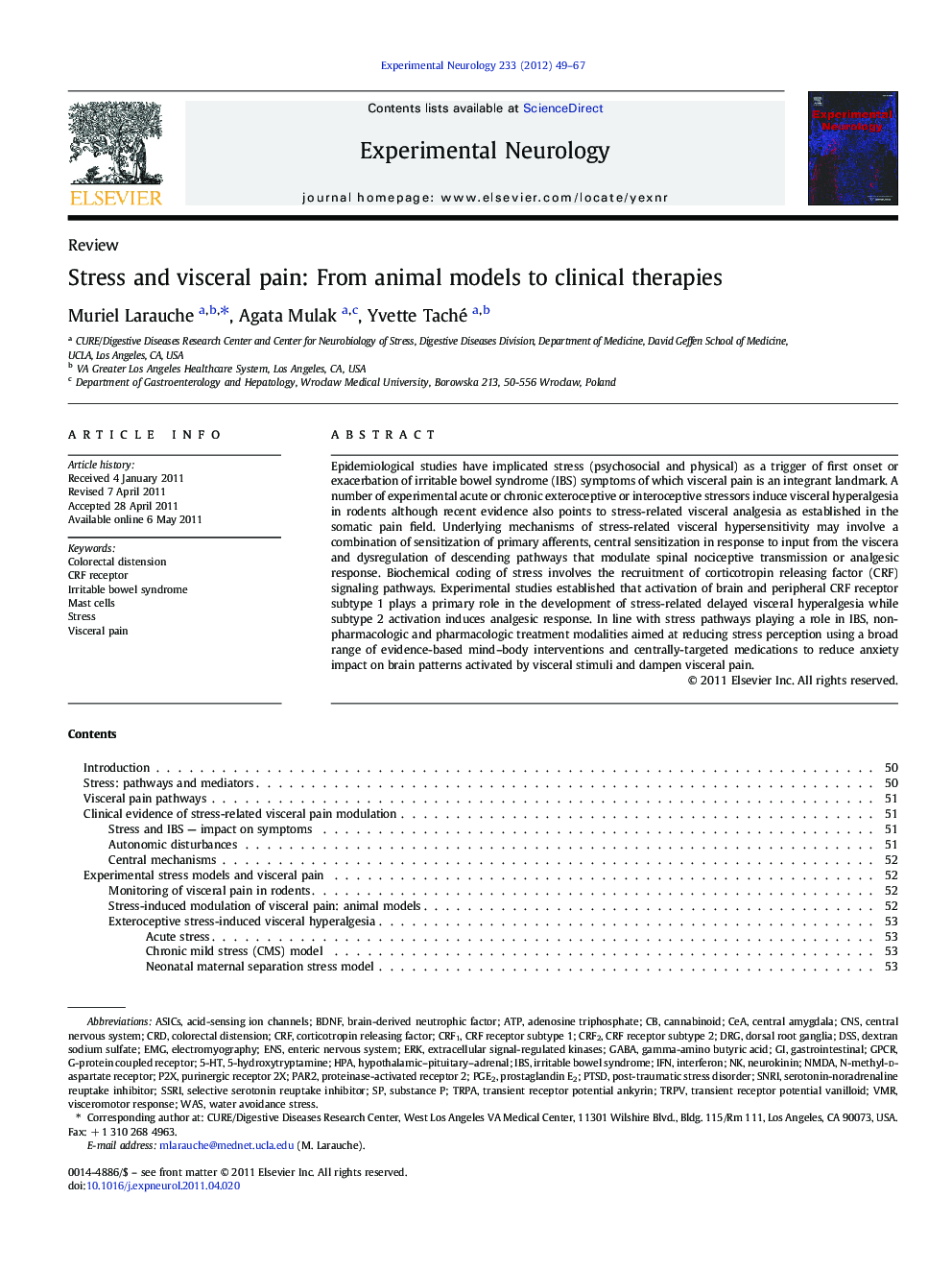| Article ID | Journal | Published Year | Pages | File Type |
|---|---|---|---|---|
| 6019037 | Experimental Neurology | 2012 | 19 Pages |
Abstract
Epidemiological studies have implicated stress (psychosocial and physical) as a trigger of first onset or exacerbation of irritable bowel syndrome (IBS) symptoms of which visceral pain is an integrant landmark. A number of experimental acute or chronic exteroceptive or interoceptive stressors induce visceral hyperalgesia in rodents although recent evidence also points to stress-related visceral analgesia as established in the somatic pain field. Underlying mechanisms of stress-related visceral hypersensitivity may involve a combination of sensitization of primary afferents, central sensitization in response to input from the viscera and dysregulation of descending pathways that modulate spinal nociceptive transmission or analgesic response. Biochemical coding of stress involves the recruitment of corticotropin releasing factor (CRF) signaling pathways. Experimental studies established that activation of brain and peripheral CRF receptor subtype 1 plays a primary role in the development of stress-related delayed visceral hyperalgesia while subtype 2 activation induces analgesic response. In line with stress pathways playing a role in IBS, non-pharmacologic and pharmacologic treatment modalities aimed at reducing stress perception using a broad range of evidence-based mind-body interventions and centrally-targeted medications to reduce anxiety impact on brain patterns activated by visceral stimuli and dampen visceral pain.
Keywords
ASICsNMDACRFCRDGPCRIBSTRPAPGE25-hydroxytryptamineERKtransient receptor potential ankyrinTRPVENSDSSCRF2CRF1PAR2DRGP2XSNRIVMR5-HTBDNFCeAG-protein coupled receptorAdenosine TriphosphateATPCentral amygdalapost-traumatic stress disorderPTSDcolorectal distensionwater avoidance stressStressEMGelectromyographyinterferonIFNWASVisceral painCNSGastrointestinalirritable bowel syndromedextran sodium sulfateenteric nervous systemcentral nervous systemcorticotropin releasing factorSubstance PMast cellsSelective serotonin reuptake inhibitorSSRIHPAneurokinin hypothalamic–pituitary–adrenalVisceromotor responsetransient receptor potential vanilloidProstaglandin E2Cannabinoidacid-sensing ion channelsextracellular signal-regulated kinasesGABAgamma-amino butyric aciddorsal root gangliaCRF receptorN-methyl-d-aspartate receptorproteinase-activated receptor 2
Related Topics
Life Sciences
Neuroscience
Neurology
Authors
Muriel Larauche, Agata Mulak, Yvette Taché,
